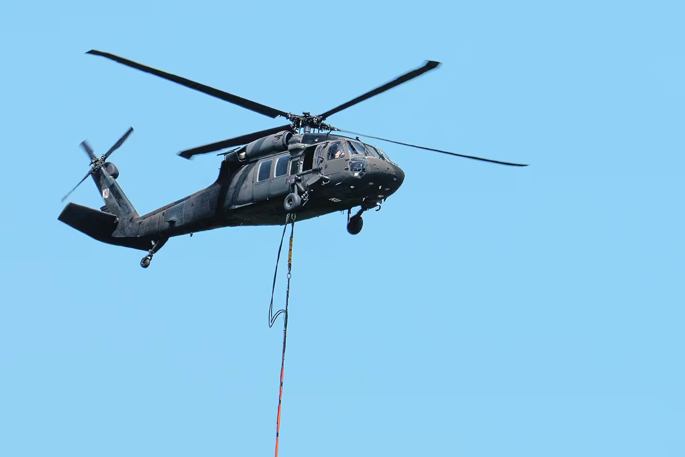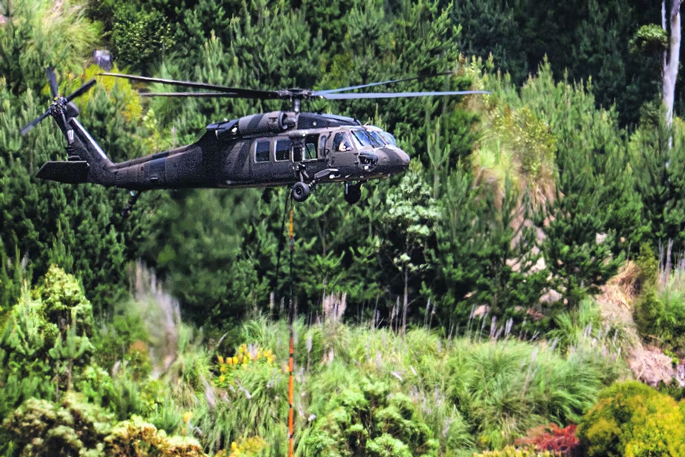Whakatāne residents have had front-row seats to a demonstration of heli-logging using a Black Hawk helicopter during the past week.
Whakatāne District Council has contracted a logging firm to fell trees on two blocks of pine trees on steep terrain overlooking the town along Valley Rd.
The logging operation, which began in mid-January, is to prevent the risk of trees falling and erosion. Road closures have been in place since January 20.
The operation was expected to be cost-neutral once logs from the 45-year-old trees had been sold. It will take about four weeks, depending on weather conditions and the difficulty of moving trees offsite.
Community experience general manager Alexandra Pickles said the steep northern section of the site required a different approach.
“Several options were explored and the heli-extraction method was selected as it presented the least environmental risk, safety risk, financial risk and least nuisance to nearby residents and road users due to its efficiency.”
Kāhu Helicopters in Whakatāne were engaged using their Black Hawk helicopter designed for heavy lifting.
The Black Hawk is an iconic helicopter known as a workhorse in the United States military and has been adapted for many purposes worldwide.
Pickles said the harvest cost would be determined after the operation finished and expenses and log sale revenue were finalised.
 A Black Hawk helicopter is lifting logs over Whakatāne. Photo / Troy Baker, Whakatāne Beacon
A Black Hawk helicopter is lifting logs over Whakatāne. Photo / Troy Baker, Whakatāne Beacon
Road closures were moved from 9am-4.30pm to 7.30am-2.30pm to make the most of calm morning wind conditions.
Nearby residents and businesses were visited by the project manager, who explained that a helicopter would be in use for three part-days, which meant changes to road closure times.
“Council staff have worked very closely with the western Valley Rd neighbours to navigate such aspects as vehicle access and infrastructure.
“Wider community communications were also carried out via social media and local radio,” Pickles said.
LDR is local body journalism co-funded by RNZ and NZ On Air.




0 comments
Leave a Comment
You must be logged in to make a comment.